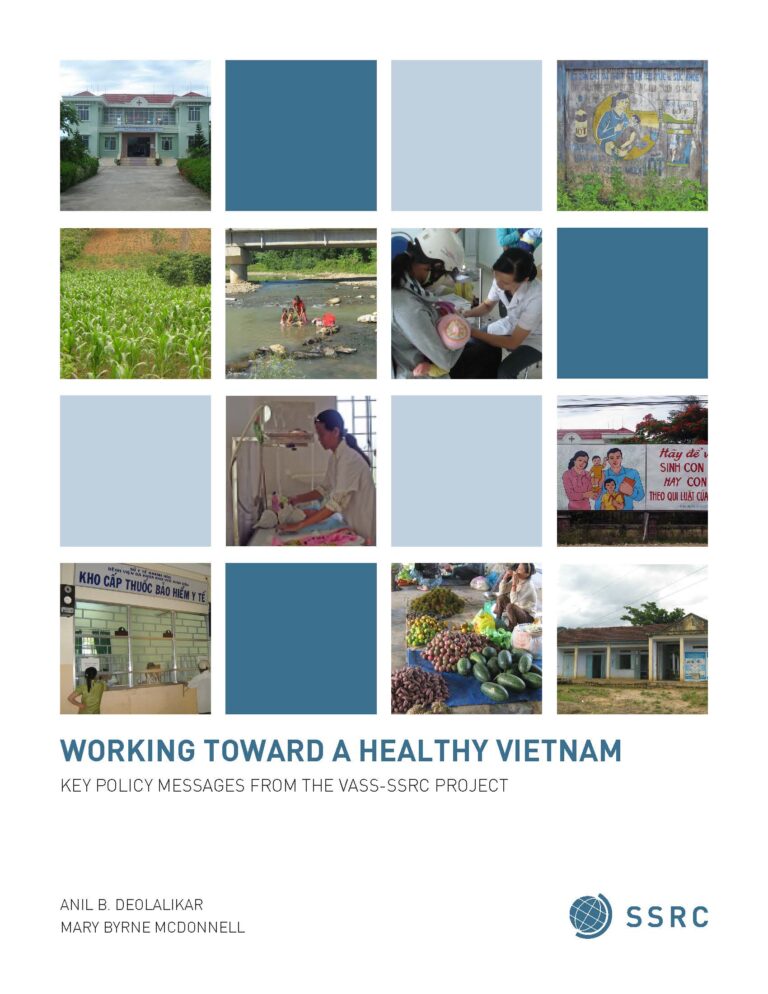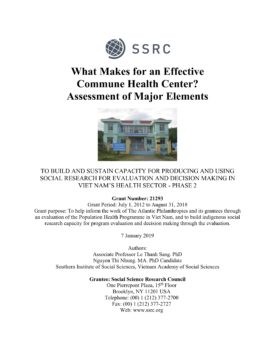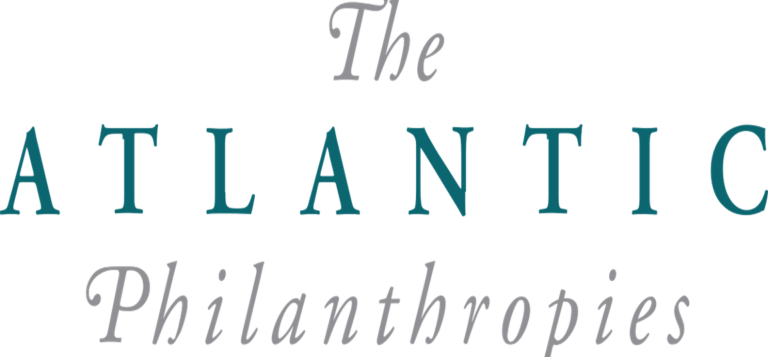Since its founding in the mid-1980s, the Vietnam Program has worked to strengthen social science research capacity in Vietnam, its wide-ranging projects embodying the SSRC’s commitment to supporting innovative social science research and mobilizing knowledge on issues of pressing public concern. In collaboration with partners both inside and outside of Vietnam, the Vietnam Program has led studies and strategic assessments to advance evidence-based policy decisions on issues relating to poverty, urbanization, migration, health, youth, and social change; awarded over a hundred grants and fellowships for Vietnam-related research projects; organized dozens of academic seminars and other exchanges of information with our Vietnamese partners; donated hundreds of publications to Vietnamese research institutions; assisted with the publication of several major bilingual volumes; and developed a network of some three hundred Vietnamese scholars in over sixty institutions throughout the country. The program is currently working on a multiphase project in partnership with the Atlantic Philanthropies, in which it evaluates and facilitates learning for public health interventions in several provinces of Vietnam. The project has focused on strengthening capacity for health-related research to inform advocacy and policymaking, producing high quality evidence for use by donors, scholars, local authorities, and government officials, and building networks of stakeholders to ensure long-term advances in Vietnam’s public health systems.
Programs & Projects
News & Events

Policy Roundtable: “Improving the Quality of Health Care at the Grassroots Level in Viet Nam”

SSRC and VASS Workshop on Developing Policy-oriented Presentations

6th Asia-Pacific Conference on Public Health

The SSRC Supports the National Vietnam Encyclopedia Project to Gain Experience from US Encyclopedia Projects

The SSRC Supports the National Vietnam Encyclopedia Project to Gain Experience from US Encyclopedia Projects

VASS and SSRC Sign Memorandum of Understanding 30 Years after First MOU





